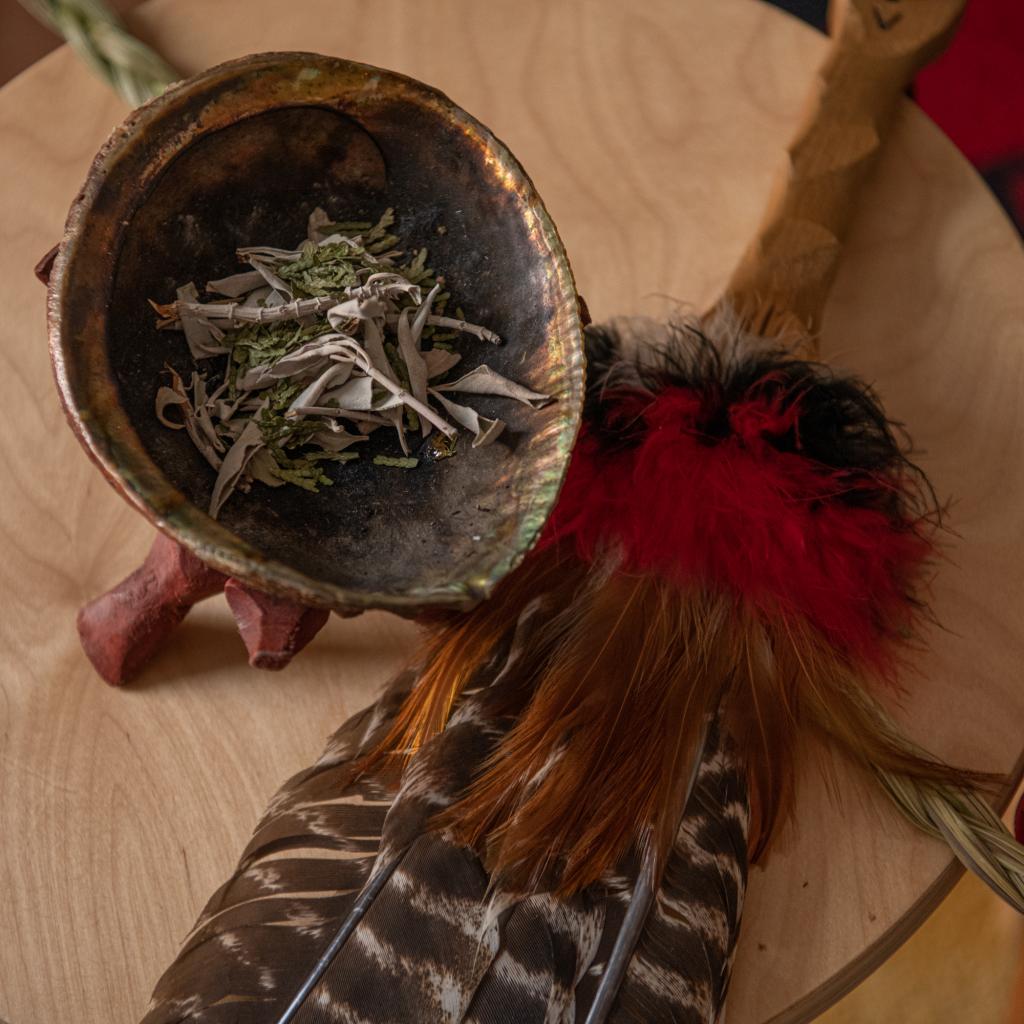Indigenous reconciliation
An introduction to Providence Health Care's Indigenous Wellness and Reconciliation work.

Overview
Providence Health Care is committed to the process of Truth and Reconciliation with Indigenous Peoples and it is embedded in everything we do.
This statement in our strategic plan recognizes the colonial abuses carried out against Indigenous Peoples. It recognizes these harms continue today and that Providence Health Care — as a Catholic-sponsored health care organization — has both a responsibility and an opportunity to help repair those harms and support reconciliation.
Providence has developed an Indigenous Wellness and Reconciliation Action Plan. The plan guides our commitment to truth, justice and reconciliation.
Providence also has an Indigenous Wellness and Reconciliation portfolio. The portfolio works on the following goals:
- To support positive patient experiences and improve health outcomes for Indigenous people
- To honour and integrate Indigenous knowledge, cultural practices, and models of care
- To help Providence be an employer of choice for Indigenous people
Indigenous Wellness and Reconciliation activities at Providence focus on:
- Indigenous Wellness Services. These include spiritual and peer support programs, patient dietary planning, and social services
- Cultural Safety
- Research
Providence works with Indigenous patients and organizations as well as the host First Nations on whose territory our facilities are located. We do so to create meaningful relationships and partnerships that will help ensure our services are inclusive, respectful, and promote Indigenous well-being.
Indigenous Wellness and Reconciliation Action Plan
Providence introduced the Indigenous Wellness and Reconciliation Action Plan in March 2022. The plan guides our work to advance Indigenous wellness, reconciliation, and human rights. It also addresses systemic anti-Indigenous racism in the health care system.
The plan outlines five-year goals with preliminary one to two-year actions. Its actions reflect recommendations of reports such as In Plain Sight, among others. (In Plain Sight documented Indigenous-specific racism and discrimination in the health system in B.C. Read the joint statement on behalf of B.C. health authorities to the report's findings.)
Summary
Read a summary of the plan.
For more information
Review the full plan and the plan on a page.
- Indigenous Wellness and Reconciliation Action Plan
- Indigenous Wellness and Reconciliation Action Plan – Plan on a Page
- Indigenous Wellness and Reconciliation Action Plan - Renewal
- Indigenous Wellness and Reconciliation 2022-24 Summary Report (Issuu)
- Indigenous Wellness and Reconciliation 2022-24 Summary Report (PDF)
Cultural safety
Providence Health Care is committed to achieving cultural safety throughout our organization. Indigenous cultural safety promotes a better health system for everyone. It:
- Reduces barriers to care
- Increases the quality and safety of services
- Improves clinical outcomes, and
- Leads to fewer inequities in health status between Indigenous and non-Indigenous people.
Providence is working to embed cultural safety in:
- Policies and standards
- Complaints and incidents reporting
- Physical environment of PHC facilities
- Recruitment and retention of employees
- Staff training and education
- Quality improvement projects
Cultural safety creates an environment free of racism and discrimination, where people feel safe when receiving health care. Cultural safety strives to address power imbalances in the health care system.
Cultural humility is the process that leads to cultural safety. Cultural humility involves self-reflection to:
- Understand personal and systemic biases
- Develop and maintain respectful processes and relationships based on mutual trust
- Acknowledge oneself as a learner when it comes to understanding another person’s experience.
(Definitions are based on those in Creating a Climate for Change, published by the First Nations Health Authority.)
In November 2017, Providence signed a Declaration of Commitment to Cultural Safety with the First Nations Health Authority (FNHA). In doing so, PHC joined a movement in which health authorities and organizations declared their commitment to embedding cultural safety and humility into their practices.
The signing took place at the Aboriginal Friendship Centre in Vancouver following a healing ceremony.
Research
One of Providence’s research goals is to meet priorities important to Indigenous people. Reconciliation is one of four foundational principles listed in the Providence Research strategic plan – Discovery: Forward. All our research is filtered through the lens of these principles (which also include advocacy, sustainability and ethics).
Our plan includes these actions:
- Develop a research agenda that advances the evidence-based implementation of recommendations from the following:
2. Create an inclusive, safe, and empowering environment for active and meaningful research collaborations with local sovereign First Nations, Indigenous organizations, Indigenous scholars, and Indigenous patients.
Indigenous research projects
Researchers associated with Providence led or assisted the following project examples:
News & stories
Last reviewed: February 11, 2025